1. Leveraging the Benefits of Freelance Writing for Public Relations
1. building Brand reputation: Writing for public relations (PR) allows freelance writers to shape and enhance a brand's reputation through press releases, media kits, and other PR materials. By crafting compelling narratives, writers can help establish a positive image for clients.
2. Media Coverage: PR writing often involves securing media coverage for clients through press releases and pitches. Freelance writers can work closely with journalists and media outlets to generate publicity and increase brand visibility.
3. Crisis Communication: In times of crisis, freelance writers specializing in PR can play a crucial role in managing and communicating a brand's response. By crafting clear and concise messaging, writers can help maintain a positive public perception.
4. Examples: For instance, a freelance writer specializing in PR can work with a startup company to create a press release announcing a new product launch, generating media coverage and attracting potential customers.
5. Networking Opportunities: Writing for PR offers valuable networking opportunities with professionals in the media marketing industry. Building relationships with journalists, editors, and PR professionals can lead to new writing assignments and career advancements.

Leveraging the Benefits of Freelance Writing for Public Relations - Benefits of writing for different media forms as freelance writer
2. Leveraging the Benefits of Account Sharing for Credit Building
1. Expand Credit History: One of the key advantages of account sharing is the ability to expand your credit history. By adding an authorized user to your credit card account, you are essentially allowing them to benefit from your positive credit history. This can be particularly beneficial for individuals who are just starting to build their credit or for those who have a limited credit history. For example, if you have been diligently paying your credit card bills on time for years, adding an authorized user with a shorter credit history can help them establish a positive credit profile.
2. Boost Credit Utilization Ratio: Another benefit of account sharing is the potential to improve your credit utilization ratio. This ratio is an important factor in determining your credit score and is calculated by dividing your total credit card balances by your total credit limits. By adding an authorized user with a low credit card balance and a high credit limit, you can effectively lower your overall credit utilization ratio. This can be particularly helpful if you have a high credit card balance and are looking to reduce your overall debt-to-credit ratio.
3. Improve Credit Mix: Account sharing can also help diversify your credit mix, which is another factor that impacts your credit score. Lenders often look for a mix of different types of credit accounts, such as credit cards, loans, and mortgages, to assess your creditworthiness. By adding an authorized user who has a different type of credit account than you, such as an auto loan or a mortgage, you can demonstrate to lenders that you can effectively manage different types of credit. This can potentially boost your credit score and make you a more attractive borrower.
4. Establish Positive Payment History: Adding an authorized user to your account can also help them establish a positive payment history. If you consistently make on-time payments, this positive payment history will be reflected on their credit report as well. This can be particularly beneficial for individuals who are trying to rebuild their credit after experiencing financial difficulties. By piggybacking on your positive payment history, they can start to rebuild their own credit and improve their creditworthiness.
5. Learn Responsible Credit Habits: Lastly, account sharing can provide an opportunity for financial education and the development of responsible credit habits. By adding an authorized user, you can guide and mentor them in managing their credit responsibly. This can include teaching them about budgeting, the importance of paying bills on time, and the potential consequences of overspending. By sharing your knowledge and experience, you can help them avoid common pitfalls and set them on a path towards financial success.
In conclusion, leveraging the benefits of account sharing can be a strategic move to boost your credit score. From expanding your credit history to improving your credit utilization ratio and credit mix, account sharing offers various advantages. Additionally, it provides an opportunity to establish positive payment history and educate others about responsible credit habits. By understanding and utilizing these benefits, you can make account sharing an effective tool in your credit-building journey.
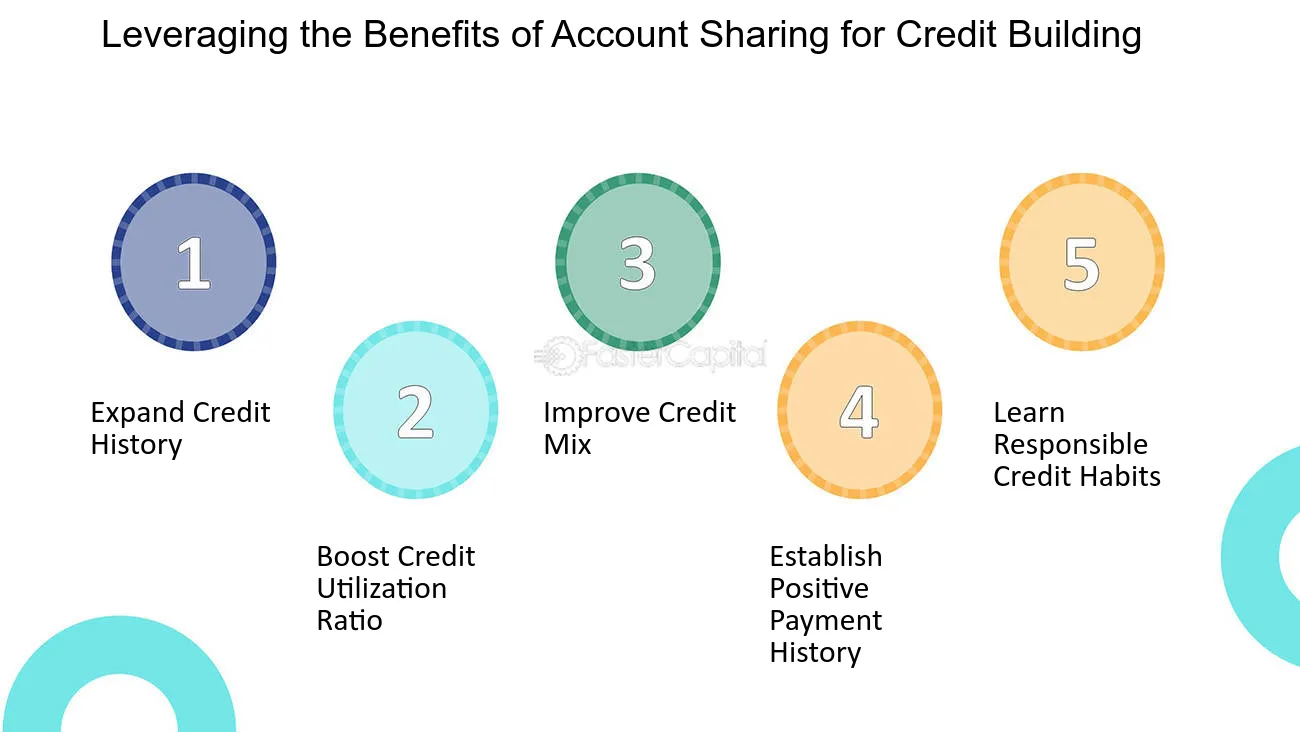
Leveraging the Benefits of Account Sharing for Credit Building - Boosting Your Credit Score through Strategic Account Sharing 2
3. Hiring Strategies for Bootstrapped Startups:Embrace Remote Work: Leveraging the Benefits of a Distributed Team
1. Increased Access to Global Talent
With a distributed team, you have the opportunity to tap into a global talent pool. You are no longer limited to hiring employees based on their proximity to your office location. This opens up a world of possibilities, allowing you to find the best fit for your team regardless of their physical location.
For example, let's say you are a startup based in San Francisco, but you find a highly skilled developer in Europe who is a perfect match for your project. With a distributed team, you can easily hire this developer and collaborate with them remotely, without the need for them to relocate or obtain a work visa.
2. Improved Productivity and Work-Life Balance
Remote work offers flexibility and autonomy to your team members, which can lead to increased productivity. Studies have shown that remote workers are often more focused and efficient, as they can create a work environment that suits their individual needs.
For instance, some people may prefer to work in a quiet space without distractions, while others may thrive in a bustling coffee shop. By allowing your team members to work remotely, you empower them to set up their ideal work environment, leading to improved productivity and overall job satisfaction.
3. Cost Savings
By embracing remote work, you can significantly reduce your overhead costs. With a distributed team, you don't need to invest in office space, furniture, or utilities. Additionally, you can save on commuting expenses, such as fuel and parking fees.
Consider this scenario: A bootstrapped startup has limited funds and needs to allocate the budget efficiently. By adopting a remote work model, they can redirect the saved funds towards product development, marketing, or hiring more team members, ultimately accelerating their growth trajectory.
4. Increased Workforce Diversity
Remote work allows you to build a diverse team with individuals from different backgrounds, cultures, and perspectives. This diversity can bring fresh ideas, creativity, and innovation to your company.
For example, a marketing agency that embraces remote work might have team members from various countries, each bringing their unique cultural insights and understanding of different markets. This diversity can help the agency better tailor their marketing strategies to specific regions, ultimately leading to improved client satisfaction and business growth.
5. Enhanced Business Continuity and Resilience
Having a distributed team can be a strategic advantage when it comes to business continuity and resilience. In the face of unforeseen circumstances, such as natural disasters or pandemics, a distributed team can continue working seamlessly, as they are not reliant on a physical office space.
Take the example of a software development company that experiences a sudden power outage in their office location. If their team is distributed, they can quickly switch to remote work mode and continue serving their clients without disruption, ensuring business continuity and customer satisfaction.
Embracing remote work and leveraging the benefits of a distributed team can be a game-changer for bootstrapped startups. By tapping into a global talent pool, improving productivity and work-life balance, saving costs, fostering diversity, and enhancing business resilience, you can create a lean and agile team that drives your startup's success.
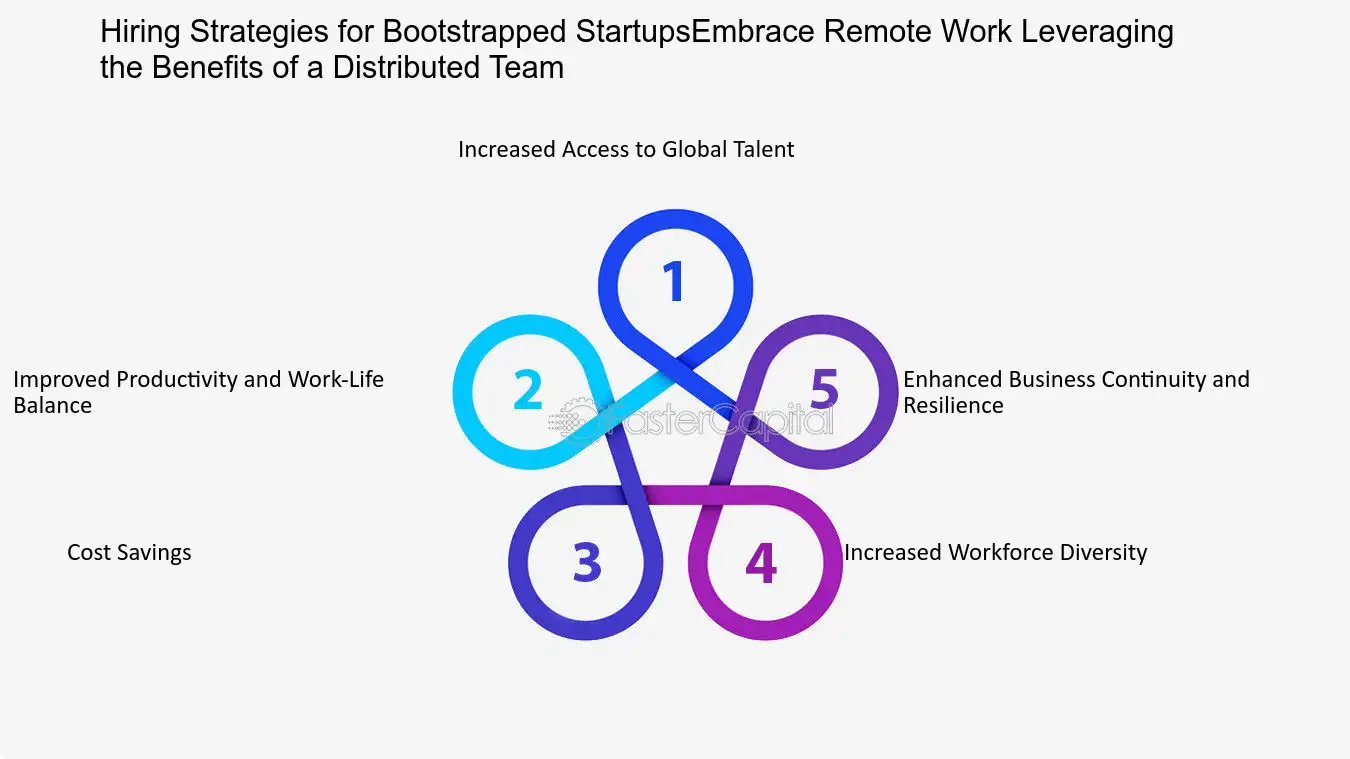
Hiring Strategies for Bootstrapped Startups:Embrace Remote Work: Leveraging the Benefits of a Distributed Team - Building a Lean Team: Hiring Strategies for Bootstrapped Startups
4. Leveraging the Benefits of PeriodCertain Convertible Term Coverage
Long-term planning can often feel overwhelming and complex, especially when it comes to ensuring financial security for the future. However, with the right tools and strategies in place, long-term planning can be made much easier and more effective. One such tool that individuals can leverage is PeriodCertain Convertible Term Coverage. This type of coverage offers a range of benefits that can help individuals navigate their long-term planning journey with confidence.
From the perspective of financial stability, PeriodCertain Convertible Term Coverage provides individuals with a sense of security knowing that their loved ones will be financially protected in the event of their untimely passing. By having this coverage in place, individuals can rest assured that their family members will have the necessary funds to cover expenses such as mortgage payments, education costs, and daily living expenses.
Moreover, from an investment standpoint, PeriodCertain Convertible Term Coverage offers flexibility and potential growth opportunities. The convertible feature allows policyholders to convert their term coverage into a permanent life insurance policy at a later date without undergoing additional medical underwriting. This means that individuals have the option to adapt their coverage as their needs change over time. For example, if an individual initially purchases a term policy to protect their family during their working years, they can convert it into a permanent policy later on to supplement retirement income or leave a legacy for future generations.
To further understand the benefits of PeriodCertain Convertible Term Coverage, let's delve into some key points:
1. Flexibility: The ability to convert term coverage into permanent coverage provides flexibility for individuals who may experience changes in their financial circumstances or goals. This ensures that the insurance policy aligns with their evolving needs.
2. Cost-effectiveness: Term policies are generally more affordable than permanent policies, making them an attractive option for those seeking comprehensive coverage at a lower premium cost. By starting with term coverage and converting it later on, individuals can secure protection while managing their budget effectively.
3. Estate planning: Convertible term coverage can be a valuable tool for estate planning. By converting the policy into a permanent one, individuals can create a tax-efficient strategy to transfer wealth to their beneficiaries while minimizing estate taxes.
4. Health changes: As individuals age, their health may change, making it more challenging to obtain new life insurance coverage. With PeriodCertain Convertible Term Coverage, individuals can lock in their insurability at a younger age and convert their policy without undergoing additional medical underwriting.
For example, let's consider Sarah, a 35-year-old professional who recently purchased a
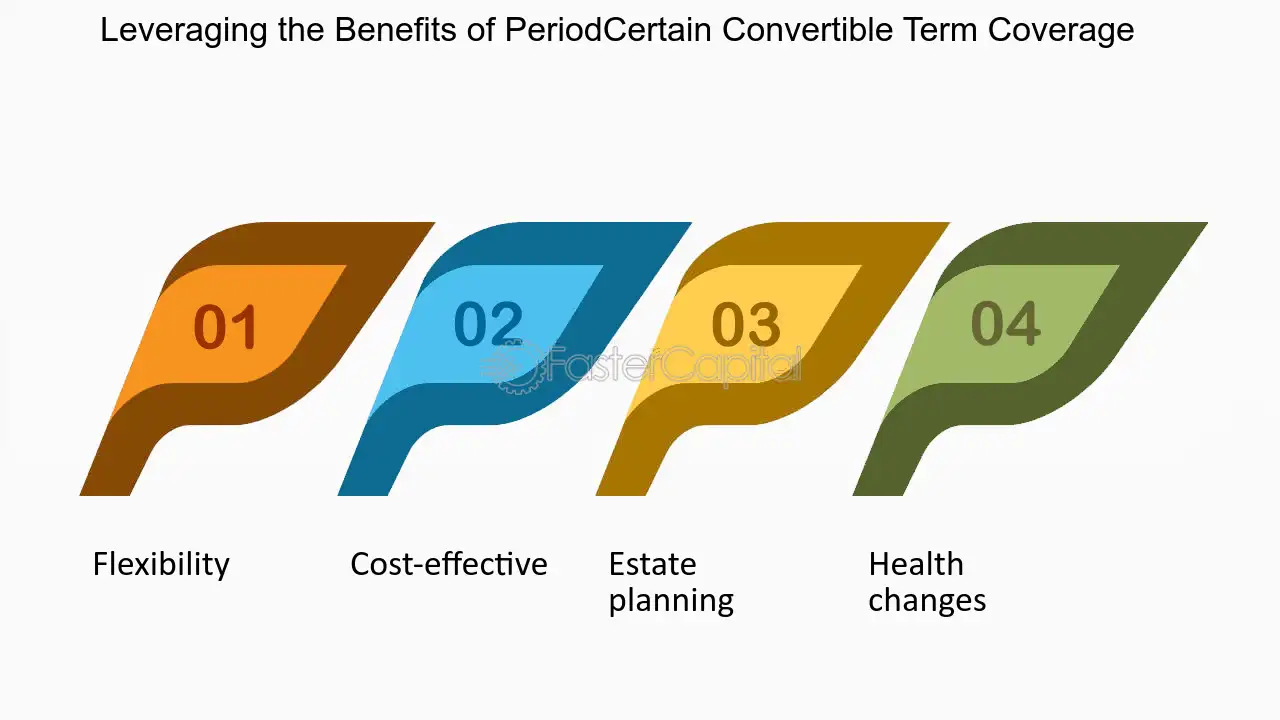
Leveraging the Benefits of PeriodCertain Convertible Term Coverage - Convertible term: PeriodCertain: The Benefits of Convertible Term Coverage
5. Leveraging Benefits and Perks
When it comes to contract negotiations, it's easy to focus solely on the monetary aspects. However, it's important to remember that there are often many non-monetary terms that can add significant value to a contract. By strategically leveraging benefits and perks, you can maximize the overall value of your agreement. Here are five key points to keep in mind when negotiating non-monetary terms:
1. Identify Your Priorities: Before entering into negotiations, take the time to identify your priorities when it comes to non-monetary terms. Consider what benefits and perks would be most valuable to you and your situation. This could include flexible working hours, additional vacation time, professional development opportunities, or access to certain resources or equipment. By knowing what you want, you can better advocate for yourself during negotiations.
2. Research Industry Standards: It's crucial to research industry standards and what competitors are offering in terms of non-monetary benefits. This will give you a benchmark to work from and ensure that you're not settling for less than what is typical in your field. For example, if flexible working hours are common in your industry, you can use this as leverage to negotiate for the same.
3. Demonstrate the Value: When negotiating non-monetary terms, it's important to articulate the value these perks bring to the employer. Show how they can improve your productivity, job satisfaction, and overall well-being. For instance, if you're negotiating for the ability to work remotely, highlight how this can save commuting time and expenses, allowing you to dedicate more focused hours to your work.
4. Bundle with Monetary Terms: Non-monetary terms can often be bundled with monetary aspects of the contract to create a more comprehensive package. For example, if you're negotiating for a higher salary, you can also request additional vacation days or a flexible schedule as part of the deal. This approach allows you to negotiate on multiple fronts and increase your chances of securing favorable terms.
5. case Studies and examples: When possible, provide case studies or examples of how similar non-monetary terms have been successfully implemented in other organizations. This can help demonstrate the feasibility and benefits of the perks you're negotiating for. For instance, if you're negotiating for a sabbatical program, share success stories from companies that have implemented similar programs to show how it can contribute to employee retention and overall satisfaction.
In conclusion, negotiating non-monetary terms is a valuable strategy for maximizing the overall value of a contract. By identifying your priorities, researching industry standards, demonstrating the value, bundling with monetary terms, and providing case studies, you can effectively leverage benefits and perks to your advantage. Remember that negotiations are a two-way street, and both parties should feel satisfied with the final agreement.
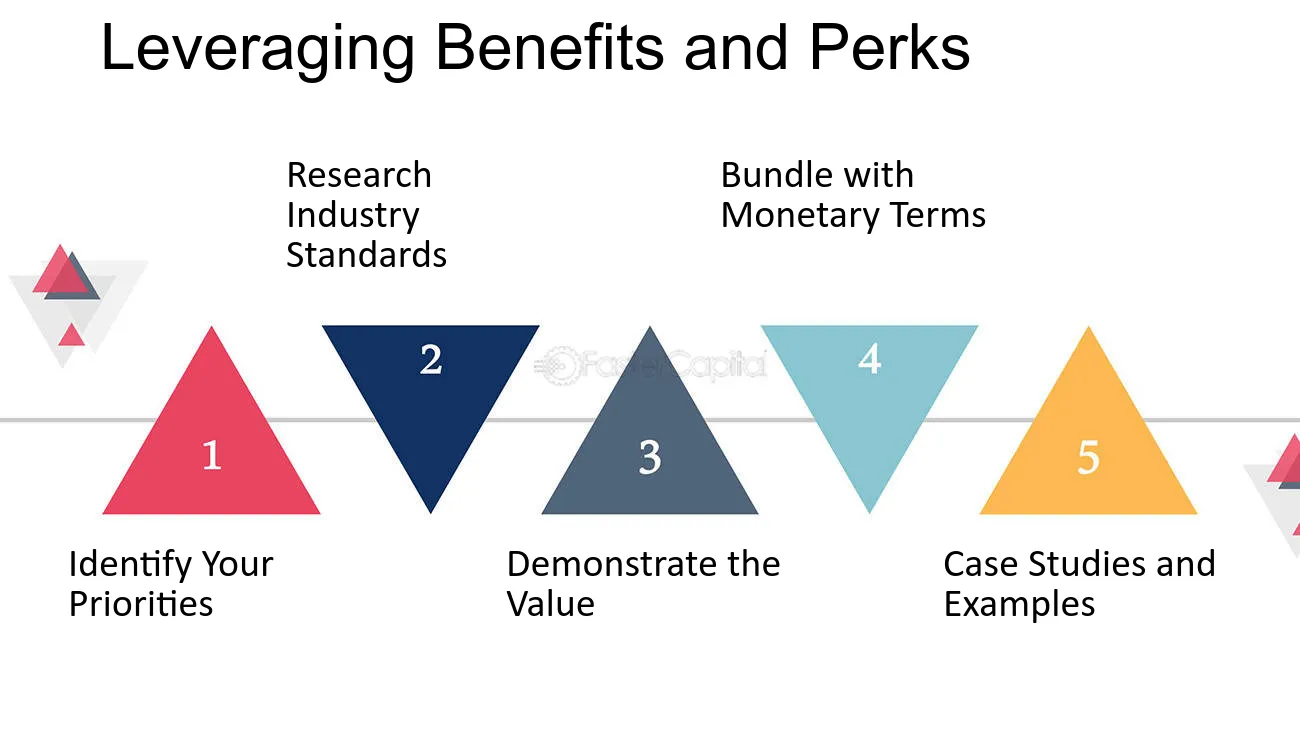
Leveraging Benefits and Perks - Counteroffers: The Art of the Counteroffer: Maximizing Value in Contract Negotiation
6. Leveraging the Benefits of Paid Advertising
While organic methods like seo and content marketing are essential for long-term success, paid advertising can provide immediate results and boost your marketing efforts. By investing in targeted paid advertising campaigns, you can reach a wider audience and drive more traffic to your website. Here's how you can leverage the benefits of paid advertising:
1. Set clear campaign goals: Define what you want to achieve with your paid advertising campaigns. This could be increasing website traffic, generating leads, driving sales, or raising brand awareness.
2. Choose the right advertising platforms: Identify the advertising platforms that align with your target audience's preferences. This could include Google Ads, social media advertising (Facebook Ads, Instagram Ads), display advertising, or influencer collaborations.
3. Test and optimize your campaigns: Continuously monitor and analyze the performance of your paid advertising campaigns. Test different ad formats, targeting options, and messaging to find what works best for your audience. Make data-driven optimizations to maximize your return on investment.
Example: Coca-Cola's "Share a Coke" campaign utilized both traditional and digital paid advertising to great success. The company personalized its bottles with customers' names and launched a campaign across various advertising channels, including billboards, TV commercials, social media ads, and influencer partnerships.

Leveraging the Benefits of Paid Advertising - Marketing strategies guide to achieving business growth
7. Leveraging the Benefits of Professional Associations
Professional associations offer a wealth of resources that can significantly enhance your career and professional growth. By becoming a member of a professional association, you gain access to a wide range of tools, information, and opportunities that can help you stay ahead in your industry. In this section, we will explore some of the key benefits of accessing resources through professional associations, along with examples, tips, and case studies to illustrate their value.
1. Industry-specific knowledge and expertise: Professional associations are often at the forefront of industry trends, research, and best practices. By tapping into their resources, you can gain access to a wealth of industry-specific knowledge and expertise. For example, the American Marketing Association (AMA) offers members access to a vast library of marketing research, case studies, and white papers that can help marketers stay up to date with the latest strategies and techniques.
2. Networking opportunities: Professional associations provide a platform for networking with like-minded professionals in your field. These connections can be invaluable for career advancement, mentorship, and collaboration. For instance, the Project Management Institute (PMI) organizes regular conferences and networking events where project managers can meet and learn from industry leaders, exchange ideas, and build relationships that can lead to new opportunities.
3. Professional development and training: Many professional associations offer a range of professional development programs, workshops, and training courses to help members enhance their skills and knowledge. These resources can be particularly beneficial for individuals looking to acquire new certifications or stay updated with the latest industry standards. The Society for human Resource management (SHRM), for instance, offers a variety of professional development opportunities, including webinars, seminars, and certification programs, to help HR professionals stay competitive in their field.
4. Job boards and career resources: Professional associations often provide job boards and career resources exclusively for their members. These resources can be a valuable asset when searching for new job opportunities or seeking career advice. The Association for Computing Machinery (ACM), for example, offers a comprehensive job board where members can find job listings specifically tailored to their expertise in the field of computer science.
5. Advocacy and representation: Professional associations often play a crucial role in advocating for the interests and rights of their members. They can serve as a collective voice to influence government policies, industry regulations, and standards. The American Bar Association (ABA), for instance, actively advocates for the legal profession and provides resources to support lawyers in their practice.
In conclusion, professional associations offer a multitude of resources that can significantly benefit your career and professional growth. By leveraging the knowledge, networking opportunities, professional development programs, job boards, and advocacy efforts provided by these associations, you can gain a competitive edge in your industry. Take advantage of these resources to stay informed, connected, and ahead in your field.
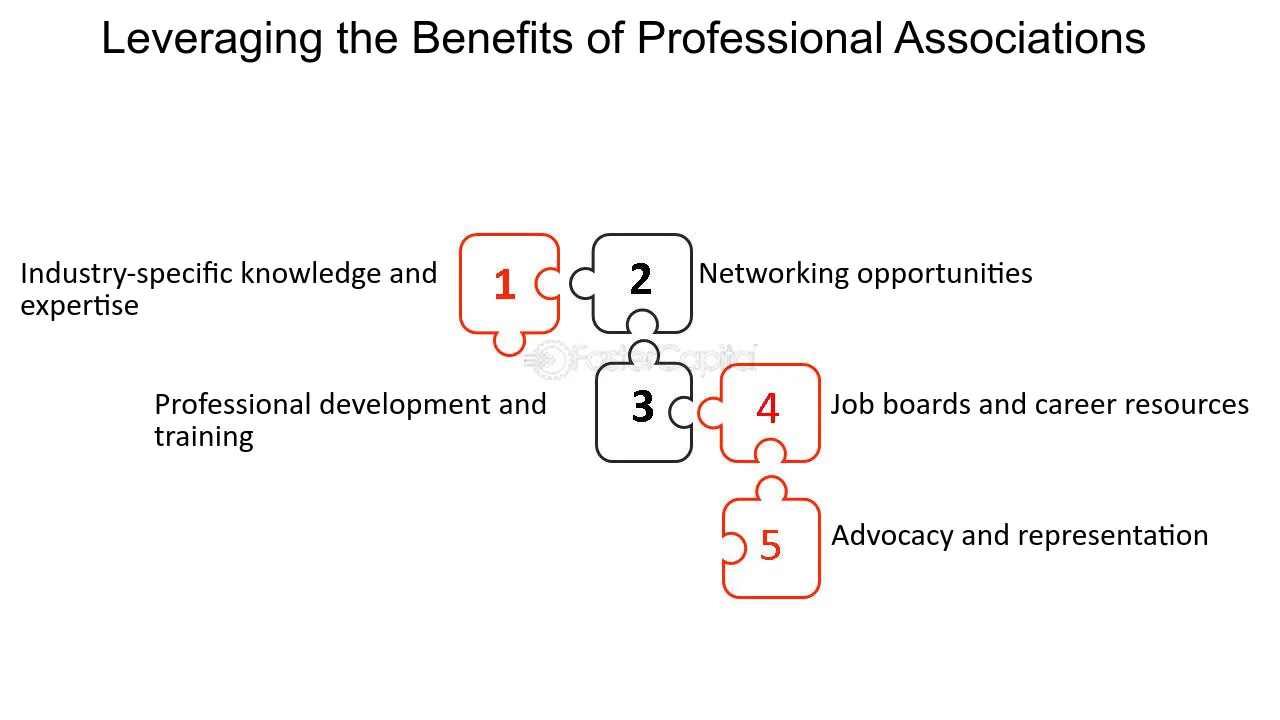
Leveraging the Benefits of Professional Associations - Professional associations: Leveraging Networks for Greater Influence
8. Leveraging the Benefits of Mobile Optimization
Mobile optimization is not limited to just responsive websites. With the increasing dominance of smartphones in our daily lives, mobile apps have become an integral part of our digital experiences. Mobile apps offer a unique opportunity for businesses to connect with their target audience in a more personalized and engaging manner. By leveraging the benefits of mobile optimization, businesses can enhance the user experience and drive better results. Here are some key advantages of mobile apps in the context of mobile optimization:
1. Enhanced User Experience: Mobile apps are specifically designed for mobile devices, which means they can provide a seamless and intuitive user experience. Unlike websites that may have limited functionality on mobile screens, mobile apps are built to take full advantage of the device's capabilities. For example, an e-commerce app can offer features like push notifications, personalized recommendations, and easy checkout options, making the shopping experience more convenient and enjoyable for users.
2. Offline Functionality: One of the major advantages of mobile apps is their ability to work offline. Unlike websites that require an internet connection to function, some mobile apps allow users to access certain features or content even when they are offline. For instance, a news app can download articles in advance, allowing users to read them later without an internet connection. This offline functionality not only enhances the user experience but also ensures that users can continue using the app even in areas with poor network coverage.
3. Utilizing Device Features: Mobile apps have the advantage of utilizing various device features such as GPS, camera, accelerometer, and more. This opens up a whole new range of possibilities for businesses to provide unique and personalized experiences. For example, a fitness app can track a user's location and provide customized workout routines based on their surroundings. By leveraging these device features, businesses can create more engaging and interactive experiences for their users.
4. Push Notifications: Push notifications are a powerful tool for engaging users and driving their attention back to your app. With mobile apps, businesses can send push notifications directly to users' devices, keeping them informed about new offers, updates, or important information. These notifications can be personalized based on user preferences, making them more relevant and increasing the chances of user engagement. For instance, a food delivery app can send a push notification with a discount code when a user's favorite restaurant has a special offer.
5. Improved Performance: Mobile apps are generally faster and more responsive compared to websites. Since apps are installed directly on the device, they can take advantage of the device's resources and optimize performance. This results in quicker load times, smoother animations, and overall better performance.
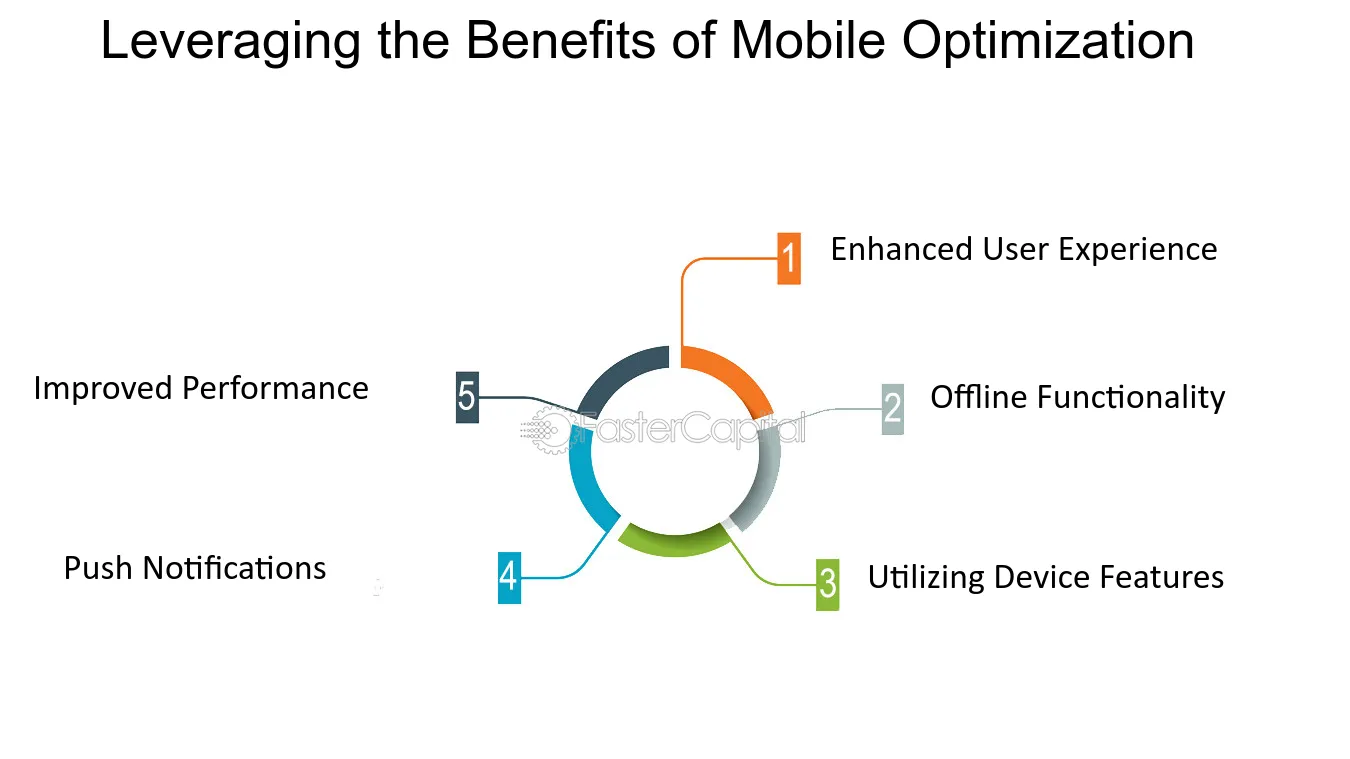
Leveraging the Benefits of Mobile Optimization - The Importance of Mobile Optimization in Digital Marketing
9. Leveraging the Benefits of Online Communities and Forums
Online communities and forums provide an excellent opportunity to engage with your target audience and drive organic website traffic. Here's how you can leverage their benefits:
1. Identify relevant communities: Research and identify online communities and forums where your target audience actively participates. Look for platforms that are specific to your niche or industry.
2. Provide value through expertise: Engage in discussions and provide valuable insights and solutions to users' questions or problems. Establish yourself as an authority in your field and build trust with the community.
3. Share relevant content: Share your blog posts, articles, or other valuable resources within the community. Make sure your content adds value and is aligned with the community guidelines.
4. Participate in discussions: Actively participate in discussions by asking questions, sharing your experiences, and initiating conversations. This helps to increase your visibility and attract traffic to your website.
By actively participating in online communities and forums, you can establish your expertise, engage with your target audience, and drive organic traffic to your website.
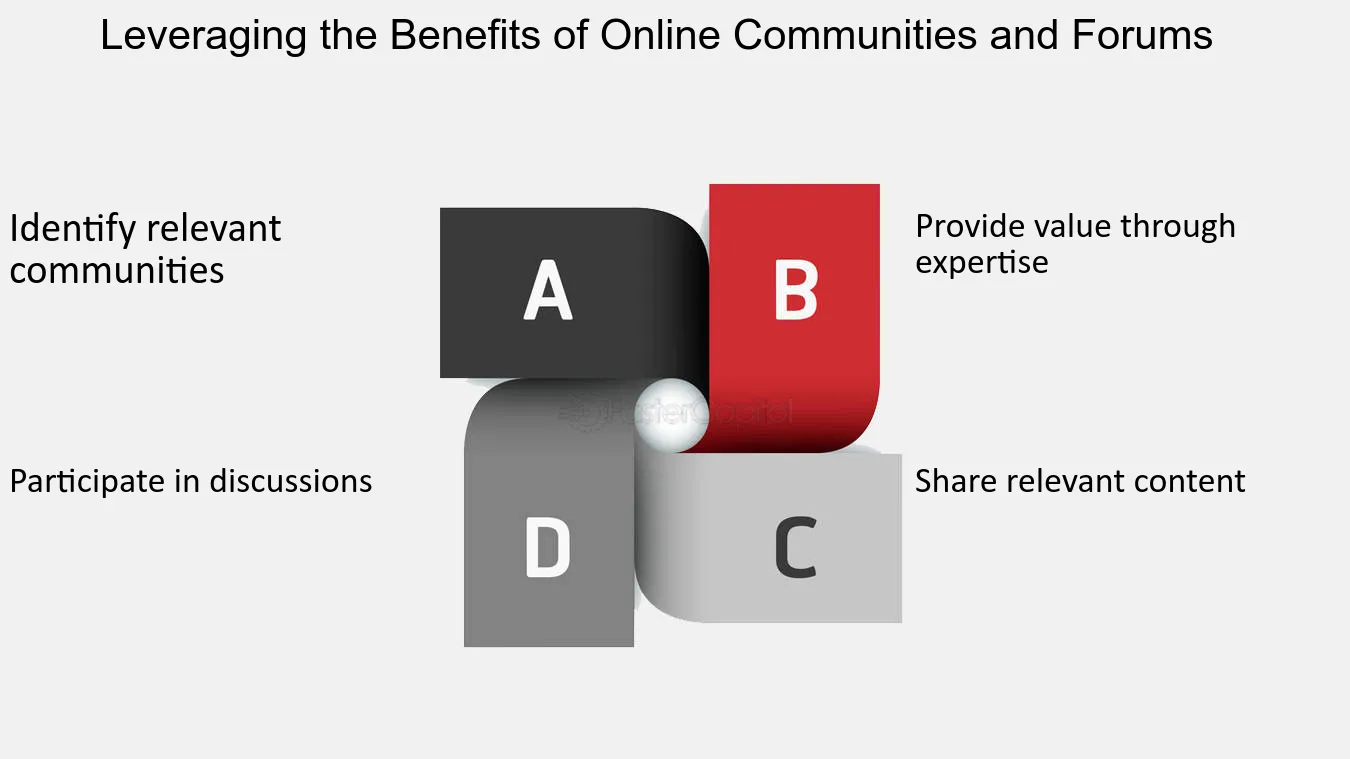
Leveraging the Benefits of Online Communities and Forums - Unlock power of organic website traffic strategies and tips
10. Leveraging the Benefits of Cash Flow Analysis in the Balance Sheet
Cash flow analysis is a powerful tool used to evaluate a businesss financial health. It measures the flow of funds into and out of a company and helps to assess liquidity, solvency, and financial flexibility. The balance sheet, on the other hand, provides a snapshot of the companys assets, liabilities, and equity at a given point in time. By combining the insights provided by both cash flow analysis and the balance sheet, businesses can gain greater insight into their financial position and make more informed decisions about their operations.
Cash flow analysis is an essential tool for understanding how money is moving through a business. By examining trends in cash flow, its possible to identify potential problems before they become serious issues. For example, if a business is consistently spending more money than it takes in, this could indicate a potential cash flow crisis that needs to be addressed. By monitoring cash flows over time, companies can identify opportunities for improvement and take corrective measures to prevent such issues from occurring in the future.
The balance sheet provides a comprehensive view of a businesss financial position at any given moment. It reveals information like the companys total assets and liabilities as well as its net worth. This information is essential for business owners who need to know how much money they have on hand and how much debt they are carrying. Combining this information with cash flow analysis can help business owners better understand their overall financial health and make more informed decisions about their operations.
For example, by combining cash flow analysis with the balance sheet, business owners can gain insight into areas where they are spending too much or not enough money. They can also detect any discrepancies between their expenses and income which could be signs of potential problems. Additionally, they can use this information to assess their overall liquidity and solvency over time to determine if they have enough cash on hand to cover any upcoming debts or liabilities.
By leveraging the benefits of cash flow analysis in combination with the balance sheet, businesses can gain greater insight into their financial position and make more informed decisions about their operations. This knowledge can help them optimize their financial performance and reduce risks associated with cash flow problems or other financial issues. Ultimately, this will enable businesses to take advantage of opportunities for growth and increase their chances of long-term success.
11. Leveraging the Benefits of Outsourcing
Modern startups face the challenge of having to do more with less. With limited resources and personnel, founders must often make difficult decisions in order to stay competitive. One of the most common solutions is to outsource certain aspects of their businesses in order to stay afloat. While this may seem counterintuitive to some, outsourcing can be a powerful way to leverage the benefits of a larger workforce without having to hire additional staff.
Outsourcing allows startups to focus on core competencies while relying on outside experts in other areas. This allows the founders to focus their attention and resources on the things that will have the most significant impact on the success of their business. Outsourcing also allows for increased scalability, allowing for more efficient expansion and growth.
Additionally, outsourcing can provide access to highly-skilled professionals who can bring a wealth of experience and expertise to the table. By outsourcing certain tasks, startups can benefit from the knowledge and skills of professionals who have specialized in their respective fields. This can be particularly beneficial when it comes to tasks such as marketing or research and development.
Finally, outsourcing can help startups remain agile and responsive to changing market conditions. By outsourcing certain tasks, startups are able to quickly pivot and adapt in order to stay ahead of their competition. This agility can be particularly important for small startups who dont have the luxury of a long-term strategy or an extensive operational infrastructure.
In conclusion, outsourcing is an important tool for startups who are looking to maximize their resources and stay competitive in todays fast-paced marketplace. By leveraging the benefits of outsourcing, startups can access the expertise they need without having to commit long-term resources or invest heavily in additional personnel. This makes it easier for startups to focus on what they do best while still taking advantage of the knowledge and skills of outside experts. In this way, difficult startups are able to remain successful despite their limited resources.
12. Leveraging the Benefits of an Effective Sales Team
Sales teams are an integral part of any business, and the benefits of having an effective sales team are highly valuable. Not only do sales teams bring in revenue for the company, but they also provide a strong customer service experience and establish relationships with potential future customers. A successful sales team should include professionals who know your products or services inside and out, as well as people who are passionate about helping customers find the best solutions for their needs.
At the heart of an effective sales team is training. Investing in proper training techniques can help ensure that your team is adequately prepared to handle customer inquiries, close deals, and build relationships with prospects. Quality training should cover both the technical aspects of the product or service being sold, as well as the soft skills needed to engage with customers in a professional manner. Soft skills such as communication, problem-solving, and relationship building are all important components of successful sales.
In addition to training, it is important to have a comprehensive system in place to measure performance, track progress, and motivate employees. Performance tracking tools such as customer data analysis, weekly pipeline reviews, and key performance indicators (KPIs) can help you identify areas for improvement and ensure that your sales team is performing to the highest possible standards. Rewards and recognition systems can also be used to motivate employees by showing them that their efforts are appreciated and encouraging them to strive for higher goals.
Effective sales teams also require strong leadership from management. Sales managers should be familiar with their teams goals, strategies, processes, and KPIs in order to effectively manage the teams performance. Leaders should be able to provide guidance and feedback on a regular basis in order to ensure that each member of the team is meeting their individual goals. Additionally, leaders should set clear expectations for their teams and have strategies in place for addressing any issues or challenges that may arise.
Finally, leveraging the benefits of an effective sales team requires an understanding of your customer base. Knowing who you are targeting with your product or service helps you determine the most appropriate marketing strategies and techniques to reach those customers. Additionally, having an understanding of customer preferences and interests can help you create more effective sales pitches and tailor your messaging accordingly.
The benefits of having an effective sales team can be significant for any business. By providing quality training, implementing performance tracking tools, having strong leadership from management, and understanding your customer base, you can leverage the benefits of an effective sales team to take your business to new heights.